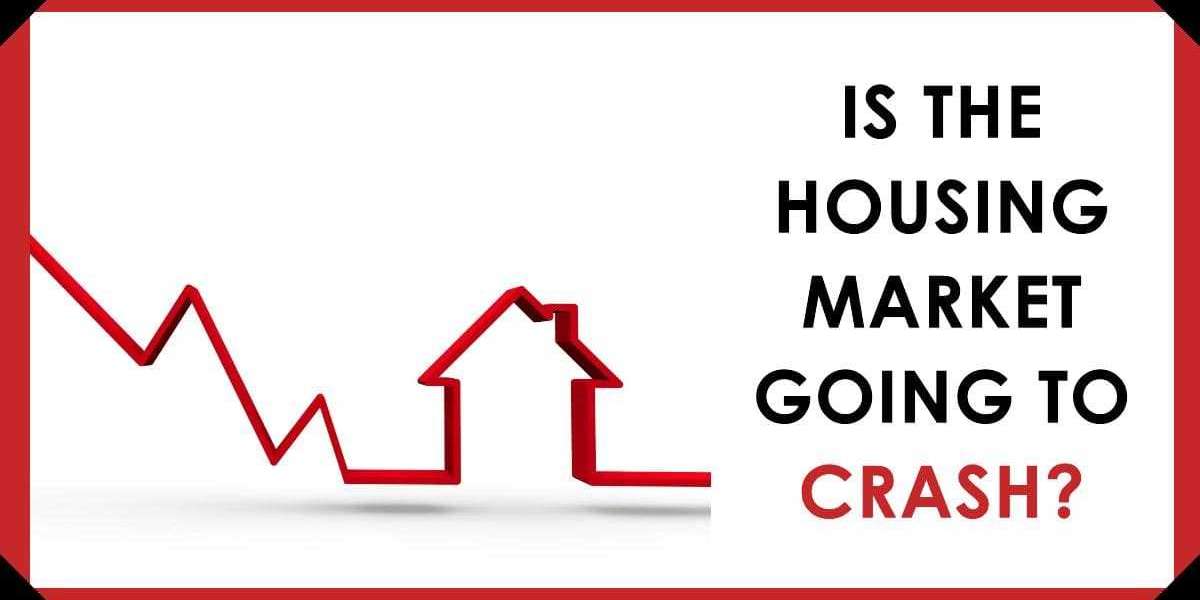Expert Consensus: A Crash Is Unlikely in 2025
Across the board, real estate economists and financial analysts are in agreement:
A full-blown housing crash is unlikely in 2025.
Here’s what they’re saying:
Bankrate’s Chief Financial Analyst Greg McBride believes the market will continue to correct, but not crash. “We may see modest declines in price appreciation or a plateau, especially in overheated markets,” he notes.
Forbes Advisor highlights that the underlying fundamentals—like low housing inventory and stricter lending standards—are still strong.
Ramsey Solutions says the idea of a crash is “media hype,” and the more realistic outlook is a period of market normalization.
SEO Keywords: housing market crash 2025, real estate predictions, is the housing market going to crash
Key Factors Preventing a Crash
Let’s break down why most experts agree a crash isn’t on the horizon:
1. Inventory Remains Historically Low
Even though housing supply has increased slightly since the pandemic boom, it’s still below long-term averages. A balanced market typically has about a 5- to 6-month supply of homes. As of mid-2025, inventory sits closer to 4.4 months.
Low supply helps keep prices from falling dramatically—even if demand weakens.
2. Lending Standards Are Much Stricter Than 2008
Unlike the loose credit environment leading up to the 2008 crisis, today’s buyers go through rigorous income verification, down payments, and credit checks. This reduces the risk of widespread defaults.
3. Homeowner Equity Is at All-Time Highs
The majority of homeowners have substantial equity in their homes, thanks to years of price appreciation and cautious refinancing. This makes mass foreclosures or forced sales far less likely.
Signs the Market Is Cooling—Not Crashing
While the fundamentals are strong, that doesn’t mean the market is booming. Here are signs of a market correction, not a collapse:
1. Buyer Demand Is Slowing
High mortgage rates (hovering around 6.5%–7%) have priced out many buyers. Home sales are down compared to 2021–2022 highs, and some listings are sitting longer on the market.
2. Price Growth Is Slowing—or Declining Slightly in Some Areas
According to Redfin and Zillow data, some overheated markets—like Austin, Phoenix, and parts of Florida—are seeing year-over-year price declines of 2%–5%. Nationwide, price growth is still modest but not crashing.
3. Sellers Are Offering More Concessions
To attract buyers, many sellers are offering incentives such as:
Covering closing costs
Lowering asking prices
Providing interest rate buydowns
This signals a shift toward a buyer-friendly market in many regions.
What Could Trigger a Housing Crash?
While a crash is unlikely based on current trends, no market is immune to outside shocks. Here are a few hypothetical scenarios that could change the game:
1. A Surge in Unemployment
If the economy slips into a deep recession and millions lose their jobs, home defaults could rise, leading to a potential glut in inventory.
2. A Rapid Spike in Mortgage Rates
If inflation surges again or the Federal Reserve increases rates dramatically, mortgage rates could exceed 8%, pushing many buyers out of the market completely.
3. Government Policy Shocks
Potential changes—like privatizing mortgage giants Fannie Mae and Freddie Mac—could increase borrowing costs or reduce financing options.
These are low-probability but high-impact events that experts are monitoring.
Regional Markets Are Responding Differently
Not all housing markets behave the same. In fact, real estate is becoming more local than ever. Here’s a regional breakdown:
Cooling Markets
Austin, TX
Boise, ID
Phoenix, AZ
Las Vegas, NV
These cities saw explosive growth during the pandemic and are now seeing moderate price declines and longer days on market.
Stable or Growing Markets
Midwestern cities like Columbus, OH and Kansas City, MO remain affordable and in demand
Southern metros such as Charlotte, NC and Nashville, TN are attracting buyers migrating from higher-cost states
Northeast urban hubs (e.g., Boston, NYC suburbs) are stabilizing with steady price trends
What Buyers Should Know
1. You May Have More Negotiating Power
With homes sitting longer on the market and fewer bidding wars, buyers can negotiate on price, repairs, and concessions.
2. Don't Wait for Prices to Collapse
A dramatic price drop is unlikely, so waiting for a “crash” could cost you more in rent and rising interest rates.
3. Focus on Monthly Affordability
Rather than timing the market perfectly, buy when the payment fits your budget and your life goals.
What Sellers Should Know
1. Price Strategically from Day One
Overpricing your home in today’s market can lead to long listing times and eventual price cuts. Be realistic and work with an agent who knows your area.
2. Highlight Turnkey and Value-Add Features
Homes with modern upgrades, energy efficiency, or strong school districts still command attention and competitive offers.
3. Be Prepared to Offer Incentives
Closing costs, rate buydowns, or home warranties can sweeten the deal for hesitant buyers.
What Investors Should Know
1. Look for Cash Flow, Not Quick Appreciation
The days of flipping homes for huge profits are fading. Instead, focus on long-term rental potential and steady ROI.
2. Diversify Regionally
Consider investing in secondary or tertiary markets with job growth, population gains, and affordable entry points.
3. Stay Liquid
Keep reserves available in case vacancies or repairs increase in a softening market.
Final Verdict: A Cooldown, Not a Crash
The evidence is clear: the U.S. housing market in 2025 is correcting, not collapsing. While affordability challenges remain and price growth is slowing, the structural weaknesses that caused the 2008 crash simply aren’t present today.
Experts predict:
Stable to modestly declining home prices in high-growth areas
Gradual improvement in inventory and affordability
Increased buyer power in select regional markets
Key Takeaways
✅ No widespread crash expected
✅ Cooling prices in select markets
✅ Strong lending standards = less foreclosure risk
✅ Buyers have more leverage
✅ Sellers must adjust expectations
Meta Description (for SEO)
Is a housing crash coming in 2025? Experts weigh in on home prices, mortgage rates, and what buyers and sellers need to know about the real estate market today.
Target Keywords
housing crash 2025
real estate market forecast
will home prices drop
housing bubble bursting
is it a good time to buy a house
Important Links
Boulevard Coast Jalan Loyang Besar EC
How to Buy a Condo in Singapore as a Foreigner
Understanding the Loan to Value (LTV) Limit in Singapore Real Estate
Cheapest Freehold Condos in Singapore
What Is Option to Purchase in Singapore



